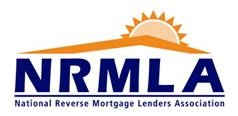Advertisement
NRMLA Launches Consumer Education Campaign

Increasing lifespan coupled with earlier retirement poses a challenge for many individuals and couples trying to figure out how to make sure their financial resources will last their lifetime. Longevity is a gift on the one hand, but it also requires forethought and planning to make sure one’s finances will sustain them through the duration of their life.
While the U.S. has an extensive social safety net with Social Security benefits and other resources available to those in need, it is really the smart use of savings, investments and other assets, that will contribute to a comfortable retirement for many Americans. There are a number of tools and strategies to help one’s financial assets last as long as possible and retirees need to familiarize themselves with all available options.
This presents a need for broad public discussion of the challenges and opportunities faced by America’s aging population.
To stimulate such discussion, National Reverse Mortgage Lenders Association (NRMLA) is launching a consumer education effort this week, a pilot program in three cities entitled New Reverse Mortgage and built around the theme that a reverse mortgage can be a Smart Choice in planning retirement funding. This educational program is designed to encourage retirees to project their future needs, examine all resources available to them, and consider whether the wealth they have built up by owning their home for many years might be a significant factor in planning for their needs.
The educational campaign now in progress in Philadelphia, Denver and Seattle features television commercials, print ads in major newspapers, a dedicated website at www.newreversemortgage.org, brochures, public information forums, outreach to financial planners and an opportunity for individuals to contact NRMLA or its members to ask questions and get more insight on how home equity might be incorporated into strategic plans for funding longevity.
Many authoritative voices, including noted financial planner Harold Evensky, personal finance columnist Jane Bryant Quinn, and Alicia Munnell, director of the Center for Retirement Studies at Boston College have suggested that, for many older homeowners, a reverse mortgage might be a way to tap their housing wealth and preserve other assets for greater long-term growth.
A reverse mortgage is a financial instrument that enables homeowners, aged 62 years or older, to draw down their equity as cash as needed, without having to make any monthly payments, sell the home or move out. Cash advances received from a reverse mortgage, plus the interest that accrues on any outstanding balance, become due and payable when the homeowner permanently leaves the home, either by selling and moving or passing away. Almost all reverse mortgages available in the U.S. today are FHA-insured home equity conversion mortgages, often referred to as a “HECM” (Home Equity Conversion Mortgage).
“A reverse mortgage is a uniquely flexible tool that has been used by nearly a million homeowners since Congress created the HECM program in 1988. Homeowners have used HECMs to pay-off their existing mortgages and eliminate their monthly payments, draw additional cash when needed, make improvements to their homes that help them age in place, or avoid selling other assets such as stocks and mutual funds allowing those assets to continue to grow and generate dividends,” explains Peter Bell, president & CEO of NRMLA.
“Unfortunately, many homeowners don’t fully understand how and when a reverse mortgage might be beneficial,” explains Otto Kumbar, CEO of Rancho Cordova, California-based Liberty Home Equity, one of six companies funding NRMLA’s educational effort. “That’s why some of the leading companies in the reverse mortgage business have pooled our resources to develop this educational program.”
Throughout the history of the HECM program, HUD has responsibly observed the behavior of reverse mortgage borrowers and made adjustments to the program based on the borrower experience. Over the past nine months, as a result of the passage of the 2013 Reverse Mortgage Stabilization Act by Congress, HUD has been implementing a series of adjustments that makes this retirement funding option safer for borrowers. The recent changes include limitations on upfront draws, which is aimed at prolonging the life of borrower assets, and financial assessment, which will indicate if borrowers have the means to fulfill their financial obligations.
“We recognize that a reverse mortgage is not a solution for everyone, but with sensible changes to the HECM program being implemented by HUD, we thought it’s time that homeowners take a fresh look to see if a reverse mortgage might be useful to them. Our goal is to give consumers an opportunity to make an informed decision, not stay away because of outdated misperceptions,” said Bell.
The NRMLA New Reverse Mortgage Educational Campaign will run through October 5, 2014 in the three pilot markets. Consumer opinion research was conducted before the launch and will be ongoing throughout the campaign and upon its conclusion.
About the author





